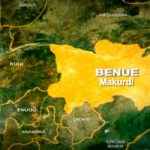Libyan government raises commercial price for kerosene as first step in reforms
Mohamed Yusuf Al Magariaf
The price will rise to 0.85 Libyan dinars ($0.6) per liter, which is also the production cost, the economy ministry of the Tripoli-based government said in a decree published online.
The price of kerosene for domestic use would remain at the old level of 0.15 dinars “until the lifting of the in-kind subsidy and its replacement with a cash subsidy for other products like petrol and diesel, which will be issued soon,” it said.
“The aim of this decision is primarily to combat the smuggling of this substance, which is purchased at the subsidized price and smuggled abroad,” the ministry said in an additional statement shared with Reuters.
Oil-rich Libya has some of the world’s most generous fuel subsidies, leading to rampant smuggling within the country and across its borders. The illicit trade has benefited criminal networks that have flourished during years of political and armed conflict since the North African country’s 2011 uprising.
Reforming the subsidies and replacing them with a cash payment is part of a package of economic reforms long promised by the Tripoli-based Government of National Accord (GNA).
Armed forces aligned with the GNA are currently locked in a battle with factions linked to a rival administration based in eastern Libya. The eastern-based forces launched an offensive against the capital in April.
The statement from the Tripoli ministry noted that kerosene was distributed through the Brega fuel distribution unit, a subsidiary of the state-run National Oil Corporation (NOC), but made no reference to a row over control of Brega.
Libya’s oil and gas industry, which earns almost all the North African country’s income, is run by the NOC in Tripoli, an institution that key foreign powers see as crucial to preventing Libya’s divisions from deepening.
Eastern authorities recently set up a parallel board at Brega after accusing Tripoli of not sending sufficient fuel supplies, especially jet fuel, to areas under its control, a charge strongly denied by NOC. Kerosene is used for jet fuel.
Eastern-based factions have tried to market oil independently and have been blocked from doing so by international sanctions, though the row over Brega has presented a new threat to the NOC’s unity.
Tim Eaton, a Libya analyst at Chatham House and author of a recent report on fuel subsidies, said singling out kerosene for early reform suggested a connection with the Brega dispute, particularly as the GNA had indicated its economic reforms would have to wait until the conclusion of the current conflict.
He also noted that much of the kerosene might be going to the internal black market, where the subsidy cut could push up prices.








